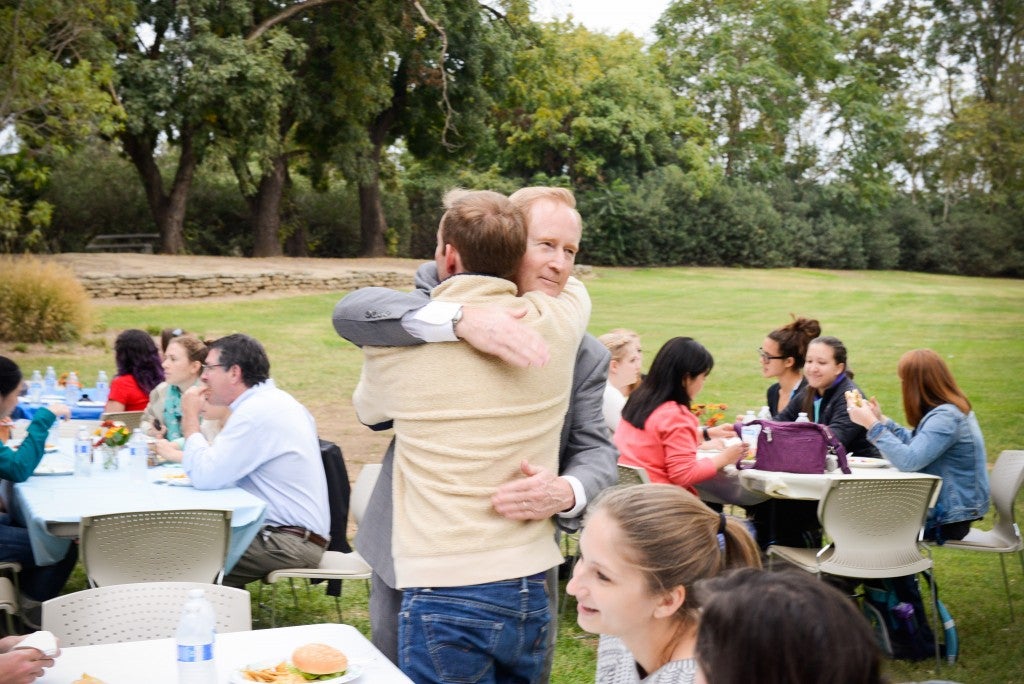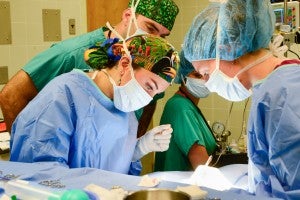“Gratitude can transform common days into thanksgivings, turn routine jobs into joy, and change ordinary opportunities into blessings.” – William Arthur Ward
 During this Thanksgiving season, it is a good time to reflect on the blessings we have in our lives. Taking the time to be thankful helps to enrich our lives and links us together. As I consider what I am thankful for, many people and programs across our school come to mind. Recently, leaders of the veterinary hospital joined my office to express our gratitude at a dinner held to honor all of the volunteers, staff, faculty, and students who helped during the Valley and Butte fires. These dedicated individuals characterize the compassion inherent in those drawn to help animals and people during a time of crisis.
During this Thanksgiving season, it is a good time to reflect on the blessings we have in our lives. Taking the time to be thankful helps to enrich our lives and links us together. As I consider what I am thankful for, many people and programs across our school come to mind. Recently, leaders of the veterinary hospital joined my office to express our gratitude at a dinner held to honor all of the volunteers, staff, faculty, and students who helped during the Valley and Butte fires. These dedicated individuals characterize the compassion inherent in those drawn to help animals and people during a time of crisis.
Our veterinary students have formed a new “Gratitude Committee” as part of their efforts to holistically address wellness and mental health. They are reaching out to those who touch their lives to express their thankfulness for enriching their school experiences. These students understand the emotional power of saying “thank you,” not only on those they acknowledge, but also on those who give thanks.


